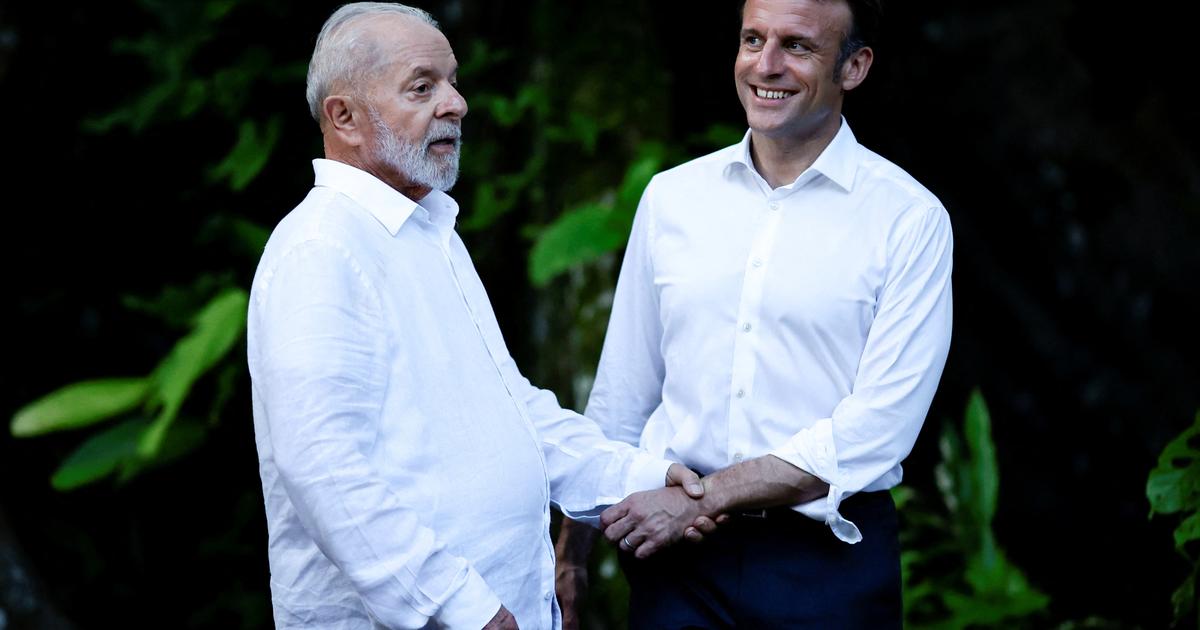(CNN) -
Traditionally, indigenous women in Brazil have been excluded from assuming leadership roles that used to be carried out by tribal patriarchs.
But those roles have changed in recent years as threats to their land rights and natural resources have increased.
Women are breaking down barriers, speaking out and joining the front line of battle against rampant deforestation, extractive activities and the worsening climate catastrophe.
O-é Kaiapó Paiakan, a member of the Mebêngôkre people of the Kayapó tribe of Brazil, is one of those women. After her father, iconic Kayapó leader Paulinho Paiakan, passed away from COVID-19 in June 2020, this 38-year-old took the reins as chief and is continuing her father's legacy as one of the environmental movement's greatest pioneers. indigenous to Brazil.
The fires burn in September along the Trans-Amazon Highway, near the Aripuanã National Forest, in the state of Amazonas (Brazil).
Deforestation continues at an extraordinary rate in the Amazon, led by land clearing for meat producers and ranchers, along with illegal mining.
The most common means of deforestation is fire, when ranchers burn the land to create farms for raising and grazing livestock.
Paiakan says that indigenous women have always been powerful.
But as climate and environmental threats worsen, they are leaving the confines of their homes to attend college and find their voice in traditionally male-dominated spaces.
"Kayapó women have always been fighting," she said.
"From us the resistance is born. From us the men, the children, the life are born. The woman is completed with the nature, and we have always been part of the resistance together with the men."
Tejubi Uru eu Wau Wau walks through the indigenous lands of his tribe near Montenegro in Rondônia.
Part of his tribe's land has been burned for cattle ranching.
"I feel sad when I enter this land. This is the land that our ancestors gave us," Tejubi said.
"It is difficult to express what I feel."
Since becoming village chiefs, Paiakan has struggled to understand the legality of protecting indigenous territories and how to confront power structures that challenge their rights.
It has also created an educational space for the women of the tribe to get involved and learn more about politics and the environmental threats they face.
advertising
"Women build culture; old women have a very important role in keeping the oral histories they pass on to children alive, so that we do not lose our language and culture," Paiakan said.
"Today women have come together to talk about these issues and are occupying the space of the bosses, making decisions together with them, to coordinate their communities and be part of the political space where these issues are discussed."
Alessandra Korap, a female leader and climate change activist from the Munduruku tribe, meets with members of the Sawré Muybu village before embarking on a patrol to monitor illegal mining in the Amazon.
Although environmental threats are not new in the Amazon, the rise of the right-wing government of President Jair Bolsonaro allowed an explosion of industrial development from oil and gas exploration, logging and mining.
These activities have gone further into the region, razing trees on indigenous lands in search of profits.
The Bolsonaro government and the Brazilian Congress have aligned themselves with the agribusiness, mining and timber sectors to recently enact what is known as the "Temporal Framework," a rule that says the right of indigenous peoples to Land will only be recognized if they can demonstrate that they occupied it in 1988, when the last Brazilian Constitution was approved.
O-é Kaiapó Paiakan conducts a radio station with other indigenous chiefs while at home with his family in Redenção, in the state of Pará.
"Kayapó women have always fought," she says.
"From us the resistance is born. From us the men, the children, the life are born. The woman is completed with the nature, and we have always been part of the resistance together with the men."
While Brazil's Supreme Court is studying the arguments against the law, Francisco Cali Tzay, the UN special rapporteur on the rights of indigenous peoples, said in August that its acceptance "would amount to a significant denial of justice."
"If the Supreme Court accepts the so-called Temporary Framework argument in its ruling on land demarcation later this month, it could legitimize violence against indigenous peoples and fuel conflicts in the Amazon rainforest and other areas," Tzay said in a statement.
Paiakan says that the law is a "setback for indigenous rights", which essentially opens up avenues for the Brazilian government to obtain the right to enter "our territory without our permission."
"It is as if we do not exist in our territory; it is as if we do not exist for the State," he said.
"They are doing all this to gain access to our territory. But we are constantly vigilant and mobilized, following everything that happens with the Temporal Framework."
Tejubi Uru eu Wau Wau with other women from her village as they prepare Urucum, a spice that is used as a condiment and also for traditional painting.
Alessandra Korap, 37, a member of Brazil's Munduruku tribe, said indigenous people are slowly losing their territory, and having nowhere to fish and harvest palm leaves, she wanted to do something.
However, as a woman, she said it was frowned upon to participate in male-dominated tribal gatherings.
Even his mother warned him not to.
But in 2015, Korap said he broke with tradition, joined bosses and spoke out about his concerns about public officials and businesses.
He says that he participated in meetings outside his village and protested against the demarcation of their lands, as well as against the infrastructures that they consider dangerous for their territories.
Illegal gold mining in the Amazon, seen over the Kayapó territory on September 22.
Illegal gold mining causes deforestation and mercury poisoning of water and the food chain.
The price of gold and other precious metals has skyrocketed during the coronavirus pandemic, prompting an increase in illegal mining and deforestation in the Amazon.
"When I speak, a lot of people don't like it, because my voice goes a long way," Korap said.
"I do not speak only for me or for those who are close to me, I speak for those who are beyond. Many people see it as a threat and want to get rid of me, eliminate me because I start to speak, but I cannot be afraid."
Threats surround her: a friend's house was burned down, while reports of attacks on other environmental defenders increased.
Then, she says, she became a target herself.
After several days of protesting against logging and mining activities in Brazil, she said that she and her husband returned home with their children and discovered that they had entered their home.
The thieves, according to her, took her cell phones and camera flash drives.
"I sensed that my voice was making someone uncomfortable," he said.
"But I couldn't stop, I need to help more, as long as I have a voice I'm going to fight."
Paiakan is painted in the face of her aunt, Tuire Kaiapó, who was one of the first indigenous women to speak openly about the harmful effects of climate change on indigenous communities and lands.
According to a recent report by the environmental and human rights organization Global Witness, Brazil - which includes much of the Amazon - is among the deadliest countries for environmental defenders, with 20 activists killed in 2020 alone. .
More than 70% of the attacks were against people defending forests - one of the planet's natural carbon sinks - from further deforestation and industrial development, according to the report.
And despite constituting just 5% of the world's population, more than 30% of all deadly attacks targeted indigenous people in 2020.
From a Redenção restaurant, Paiakan listens to indigenous leader Sônia Guajajara on a Zoom call with other leaders from across Brazil.
Tejubi Uru eu Wau Wau's uncle was one of those killed last year.
Tejubi, 21, a member of the Uru-eu-Wau-Wau tribe from Rondônia state, said his uncle had long been an environmental defender, patrolling indigenous territories and protecting them against illegal logging and deforestation.
More than a year later, Tejubi said they still don't know how her uncle died, but claimed that she and the rest of the tribe blame his death on the extractive industries.
"We were sad; we tried to take care of everything," he said.
"It had only been a week since my uncle died, my grandfather went to the forest to sing for his death and he found new invaders, two whites hunting. They don't respect us."
Korap stops on the bank of the Jamanxim River in search of turtle eggs to eat while on patrol for illegal mining.
Tejubi said that deforestation continues to penetrate the forests and their territories.
In late summer, she joined the protests against the Time Frame, and was greeted with pepper spray and smoke bombs, she said.
Still, he plans to continue fighting for his tribe after graduation.
"A lot of people think I can't do it because I'm a woman; I have to deal with a lot of machismo," she said.
"Women make more of a difference, because we work more, we solve things and we are not afraid to say what we think."
A UN report published in March found that, on average, forests located on indigenous lands in Latin America and the Caribbean have been conserved much better than other forests in the region.
Tejubi rests while fishing with other members of the Uru eu Wau Wau tribe in the Jaru River.
But these cultural and tribal practices are constantly threatened by the effects of climate change, as well as inroads from industry such as fossil fuel production, ranching, soybean and palm oil extraction, mining and logging.
This industrial need for resources has increased the construction of roads in the forests to make the region more accessible.
This is what led Txai Suruí, a member of the Suruí tribe, to the UN climate summit in Glasgow, Scotland, in November.
The 24-year-old climate activist spoke to world leaders at the conference and drew attention to the devastating ecological and climate disasters plaguing her land.
"Climate change and its consequences is something that nature has been trying to warn us about for a long time, but we never hear," he said in an interview before the climate summit.
"Nature is saying 'we don't have any more time, we don't have time to slow down, we have to stop.' Nature is asking for help."
Txai Suruí, a member of the Suruí tribe.
Brazil came to the summit with ambitious climate promises, including to cut emissions by 50%, and also joined other nations in agreeing to end illegal deforestation entirely by 2030, as well as achieve climate neutrality. carbon by 2050.
But many questioned the credibility of the country's promises given its recent track record.
An analysis shows that deforestation in the Amazon increased 33% in the first ten months of 2021, compared to the first ten months of 2020. In October, a group of climate lawyers urged the International Criminal Court to investigate Bolsonaro for their alleged attacks on the Amazon forests, which they describe as "crimes against humanity."
Illegal logging seen from above on the indigenous land of Kaiapó on September 22.
For now, women intend to continue fighting to defend their land and forests, the lungs of the planet, climate change and more industrial activities.
"The forest is our pharmacy, the supermarket, it is our way of life," said Paiakan.
"Nature is part of us, and damaging nature hurts us."
"This is a story from our ancestors, which is part of us. We have lived here a long time," he said.
"For a white ... they do not see the value. They value the devastation to plant soybeans and large plantations. For us, nature is a natural wealth, it is a capital wealth."


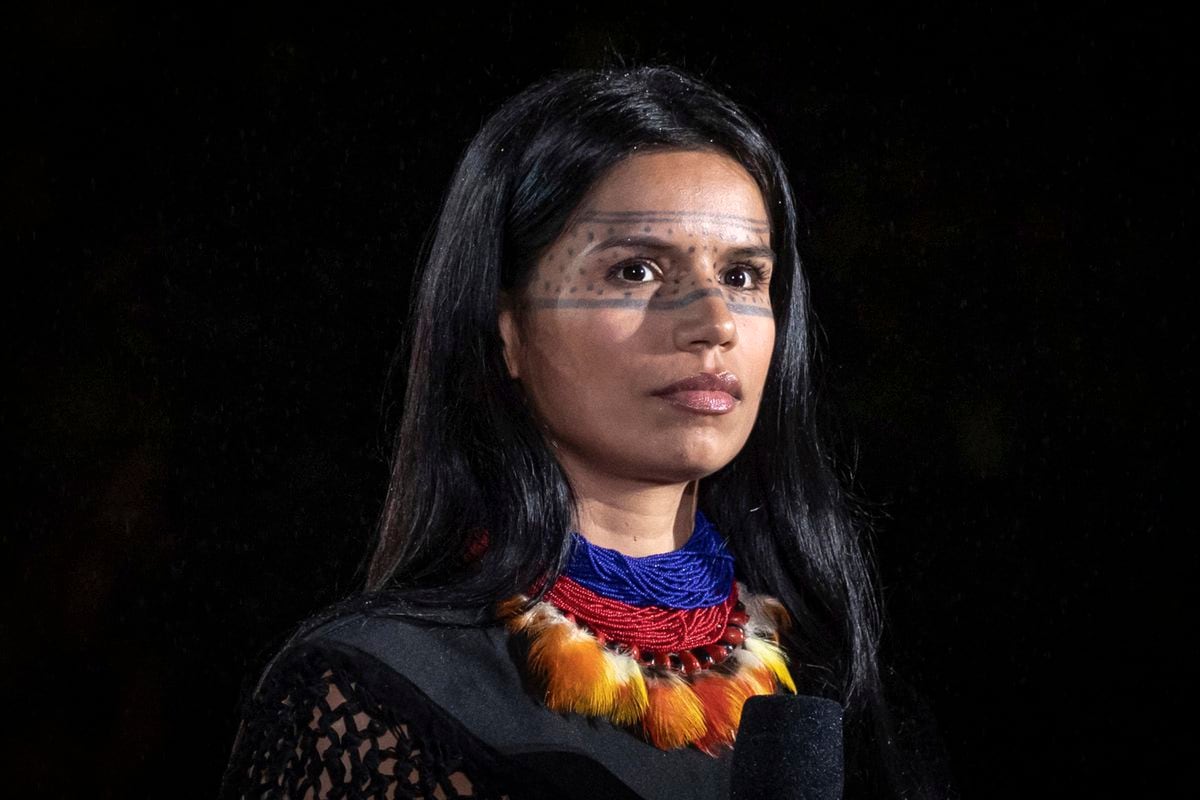
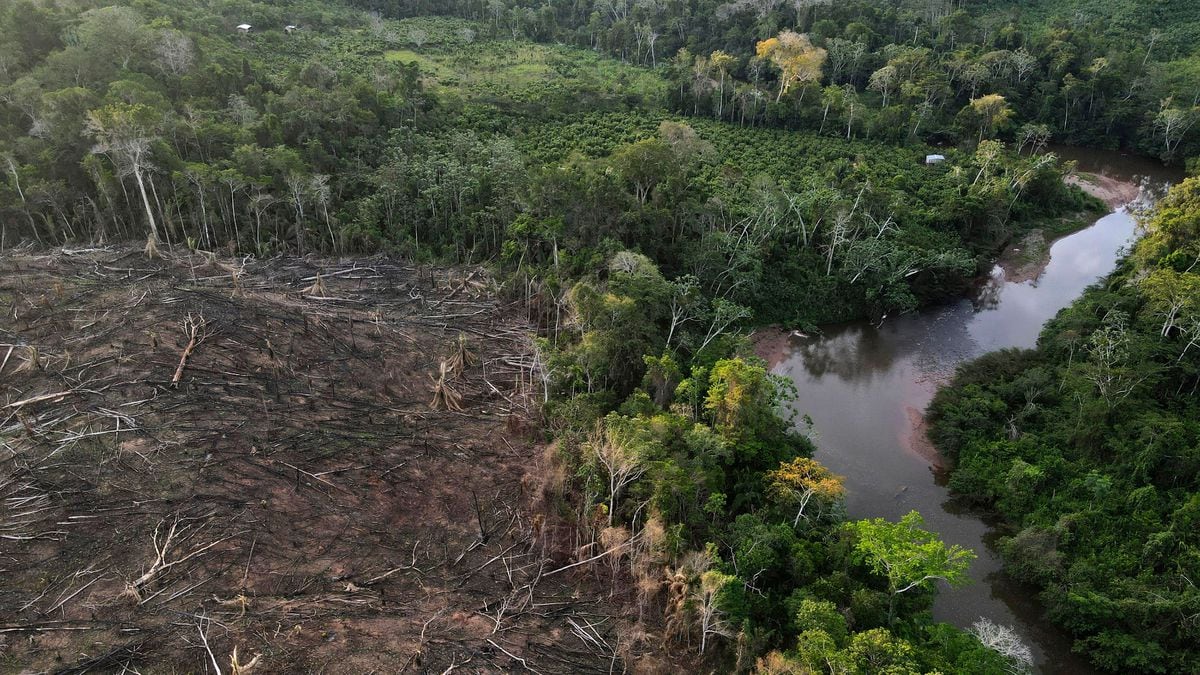
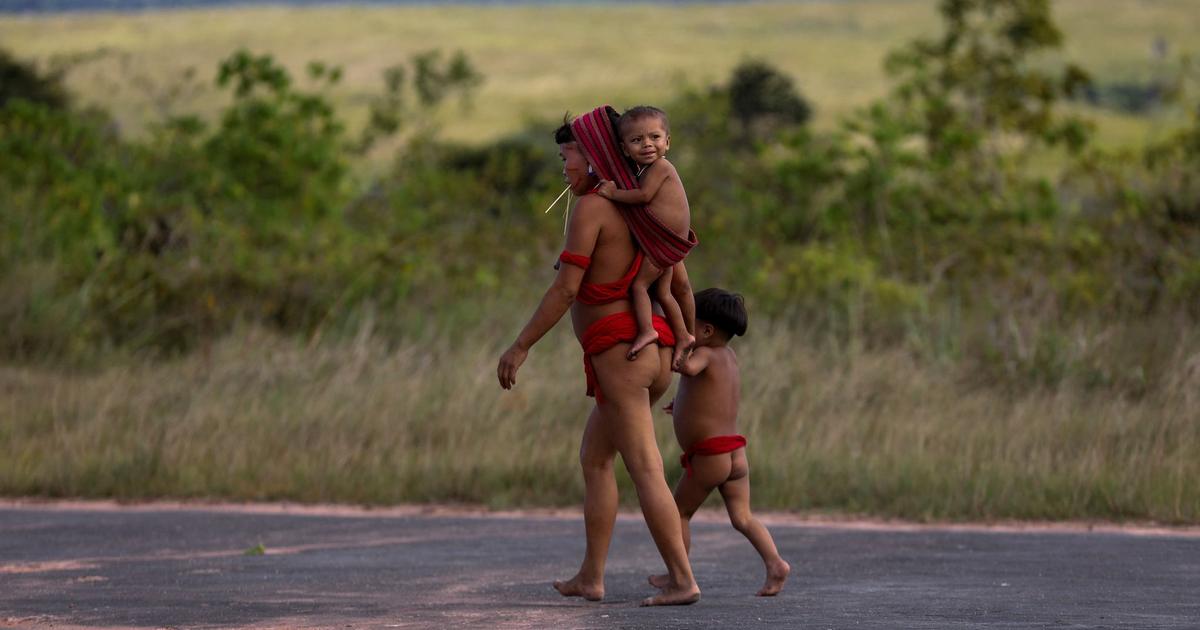

/cloudfront-eu-central-1.images.arcpublishing.com/prisa/L64PMGMKXNDP5EHGZTYIAK3UTU.jpg)
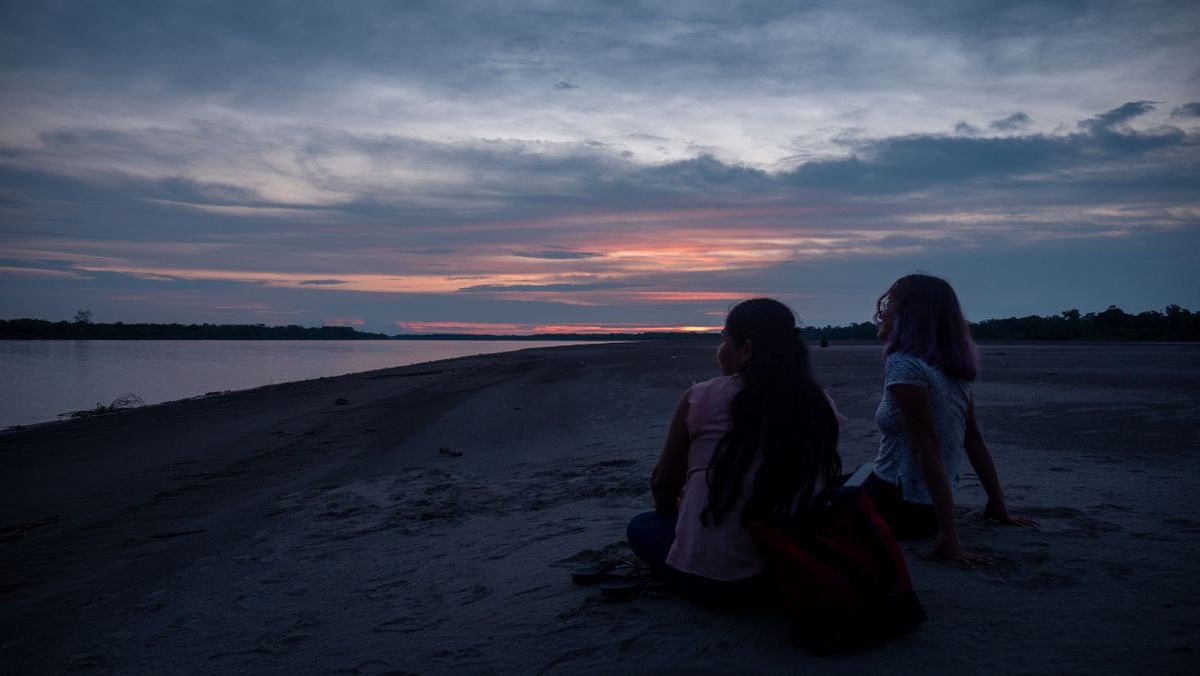
/cloudfront-eu-central-1.images.arcpublishing.com/prisa/XWDEWCZPBVCCDFB3VJU2TWK5PY.jpg)
